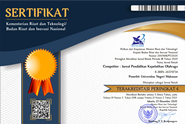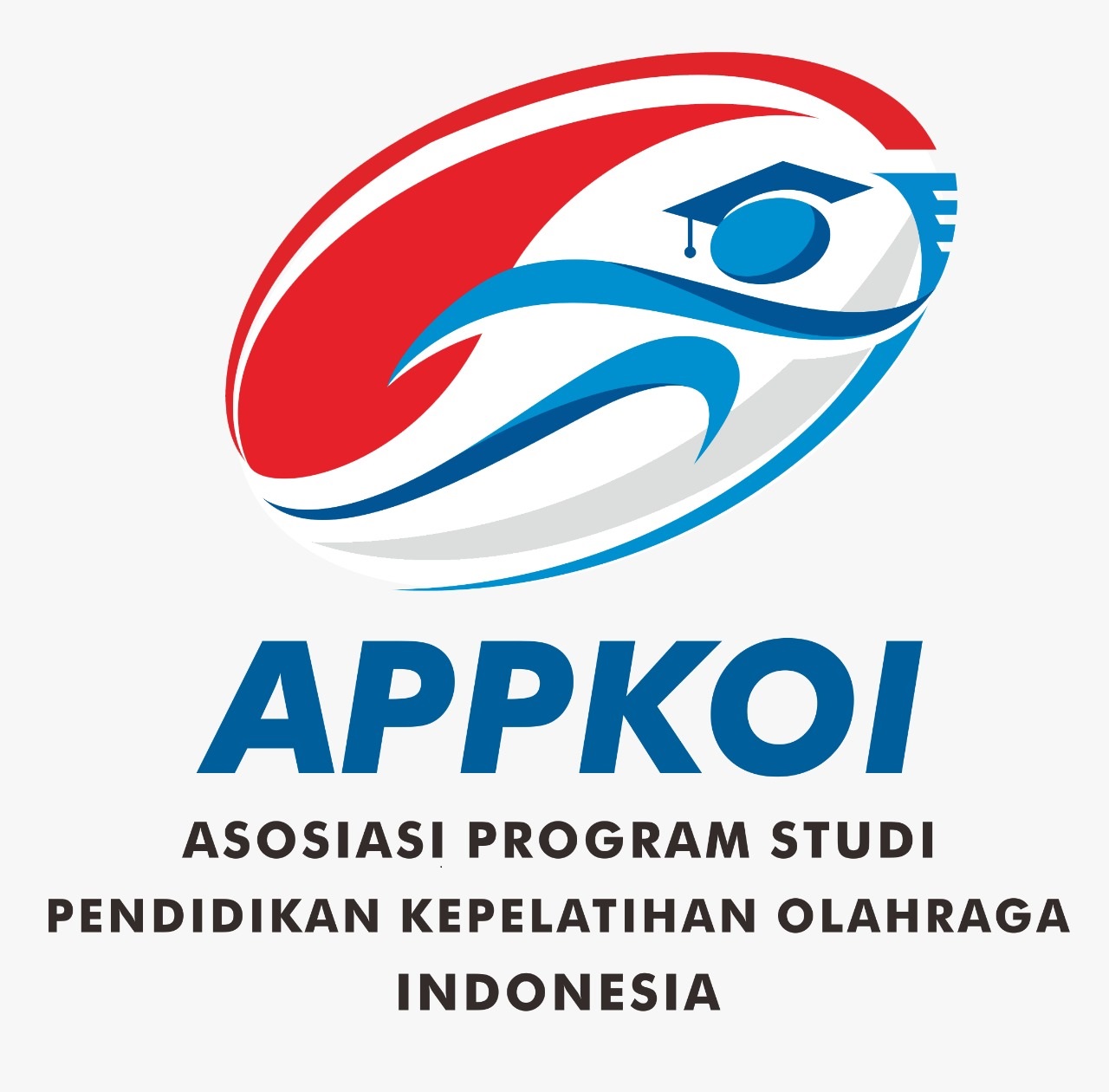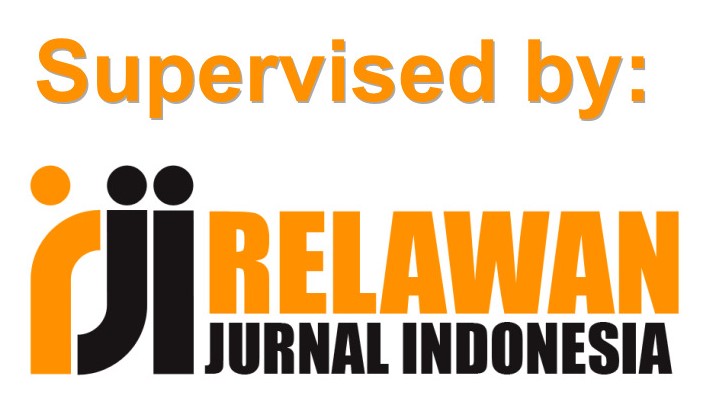Efforts to Increase the Cognitive and Physical Abilities of Kindergarten Students
(1) Universitas Lampung
(2) Institut Teknologi Sumatera
(3) Universitas Mercu Buana Yogyakarta
(*) Corresponding Author
DOI: https://doi.org/10.26858/cjpko.v15i1.43994
Abstract
Physical education in general is part of education. Through physical education is hoped that individual development is not only beneficial for improving psychomotor abilities, but also for cognitive and affective development, so that physical education contributes significantly to the development of all children. One form of formal education is through physical education at kindergarten. Which is part of overall education, aiming to develop aspects of physical fitness, movement skills, critical thinking skills, social skills, reasoning, emotional stability, moral action, aspects of a healthy lifestyle, and the introduction of a clean environment. The purpose of this study was to improve the cognitive and physical abilities of kindergarten students through rotating ring games at PKK Wates Bumiratu Nuban Kindergarten, Central Lampung and to improve children's learning outcomes, teachers must be skilled in teaching and also master the subject matter. The learning process requires good teaching skills because physical education learning needs movement skills and an approach model in its implementation. This type of research is classroom action research with three cycles and each cycle has different activities. The sample used in this study was a group of 32 TK PKK Wates Bumiratu Nuban Group B. Data collection in each cycle used an instrument for assessing the cognitive and physical abilities of kindergarten children. Data analysis technique using tabulation and proportion. The results of this study indicate that there is an increase in each cycle, namely: the first cycle of 25%, the second cycle of 31.25%, and the third cycle of 43.75%. Based on the analysis and discussion of the research results, it can be concluded as follows: Learning by using rotating ring games can improve the cognitive and physical abilities of the children of Group B PKK Wates Bumiratu Nuban Lampung. Learning with rotating ring games is very effective as a model of an educational approach to learning and playing for children's cognitive and physical abilities.
Keywords
Full Text:
PDFReferences
Chen, E., Brody, G. H., & Miller, G. E. (2017). Childhood close family relationships and health. American Psychologist, 72(6), 555–566. https://doi.org/10.1037/amp0000067
Corbin, C. B. (2021). Conceptual physical education: A course for the future. In Journal of Sport and Health Science (Vol. 10, Issue 3). https://doi.org/10.1016/j.jshs.2020.10.004
Costa, H. J. T., Abelairas-Gomez, C., Arufe-Giraldez, V., Pazos-Couto, J. M., & Barcala-Furelos, R. (2015). Influence of a physical education plan on psychomotor development profiles of preschool children. Journal of Human Sport and Exercise, 10(1), 126–140. https://doi.org/10.14198/jhse.2015.101.11
Cuberos, R. C., Ortega, F. Z., Molero, P. P., Knox, E., Bolados, C. C., Garófano, V. V., & Molina, J. J. M. (2018). Relationship between healthy habits and perceived motivational climate in sport among university students: A structural equation model. Sustainability (Switzerland), 10(4). https://doi.org/10.3390/su10040938
Erickson, K. I., Hillman, C. H., & Kramer, A. F. (2015). Physical activity, brain, and cognition. Current Opinion in Behavioral Sciences, 4, 27–32. https://doi.org/10.1016/j.cobeha.2015.01.005
González-García, H., Pelegrín, A., & Carballo, J. L. (2018). Parental educational styles as a predictor of sport success and sports competition level. Revista Internacional de Medicina y Ciencias de La Actividad Fisica y Del Deporte, 18(71). https://doi.org/10.15366/rimcafd2018.71.012
Hawi, N. S., & Samaha, M. (2017). The Relations Among Social Media Addiction, Self-Esteem, and Life Satisfaction in University Students. Social Science Computer Review, 35(5), 576–586. https://doi.org/10.1177/0894439316660340
Iwandana, D. T., Sugiyanto, & Hidayatullah, M. F. (2018). Traditional Games to Form Children ’ s Characters In Dieng Plateau Banjarnegara Central Java Indonesia. Journal of Education, Health and Sport, 8(11), 407–415.
Kesselring, T., & Müller, U. (2011). The concept of egocentrism in the context of Piaget’s theory. New Ideas in Psychology, 29(3), 427–345. https://doi.org/10.1016/j.newideapsych.2010.03.008
Librianty, H. D., Yufiarti, & Yetti, E. (2021). Teacher involvement in active play and its effect on children’s physical literacy. Journal of Physical Education and Sport, 21(4), 2236–2242. https://doi.org/10.7752/jpes.2021.s4298
Nejawati, A. (2017). Upaya Meningkatkan Keterampilan Berbicara Siswa Dengan Menerapkan Metode Show and Tell Pada Pembelajaran Bahasa Dan Sastra Indonesia. Jurnal Ilmiah FKIP, 3(2), 2461–3961. https://doi.org/10.1017/CBO9781107415324.004
Pieron, M., & Ruiz-Juan, F. (2013). Influence of family environment and peers in physical activity habits of youth people. Revista Internacional de Medicina y Ciencias de La Actividad Fisica y Del Deporte, 13(51).
RezaeiZadeh, M., Hogan, M., O’Reilly, J., Cunningham, J., & Murphy, E. (2017). Core entrepreneurial competencies and their interdependencies: insights from a study of Irish and Iranian entrepreneurs, university students and academics. International Entrepreneurship and Management Journal, 13(1), 35–73. https://doi.org/10.1007/s11365-016-0390-y
Riyanto, I. A., & Kristiyanto, A. K. (2017). Pengembangan Model Pembelajaran Keterampilan Motorik Berbasis Permainan Untuk Anak Sekolah Dasar Usia 9-10 Tahun. TEGAR: Journal of Teaching Physical Education in Elementary School, 1(1), 94–98. https://doi.org/10.17509/tegar.v1i1.8679
Saputra, N. E., & Ekawati, Y. N. (2017). Permainan Tradisional Meningkatkan Kemampuan Dasar Anak. Jurnal Psikologi Jambi, 2(2), 48–53.
Sumantri, M. S., Hidayat, D. R., & Juriana, J. (2021). The urgency of sports talent instruments: Perspectives of early childhood teachers in Indonesia. Journal of Physical Education and Sport, 21(4), 2343–2349. https://doi.org/10.7752/jpes.2021.s4314
Article Metrics
Abstract view : 124 times | PDF view : 26 timesRefbacks
- There are currently no refbacks.
Copyright (c) 2023 Dody Tri Iwandana, Herman Tarigan, Boy Sembaba Tarigan

This work is licensed under a Creative Commons Attribution 4.0 International License.
COMPETITOR IS LICENSED BY :
 COMPETITOR is licensed under a Creative Commons Attribution 4.0 International License.
COMPETITOR is licensed under a Creative Commons Attribution 4.0 International License.
COMPETITOR EDITORIAL LOCATION :
![]() Kampus FIK Banta Bantaeng, Jalan Wijaya Kusuma Nomor 14, Rappocini, Makassar, Postal Code 90222
Kampus FIK Banta Bantaeng, Jalan Wijaya Kusuma Nomor 14, Rappocini, Makassar, Postal Code 90222
COMPETITOR IS INDEXED BY















